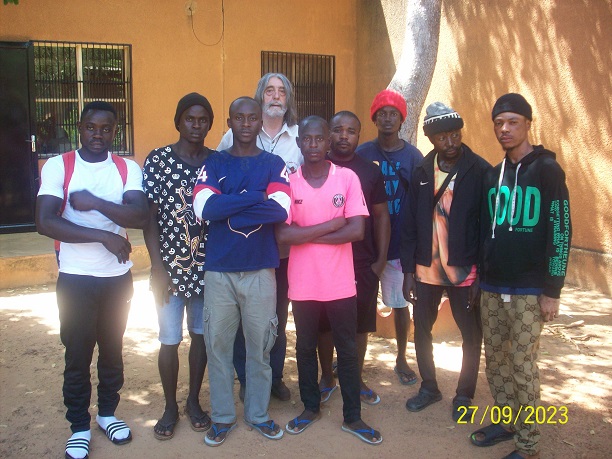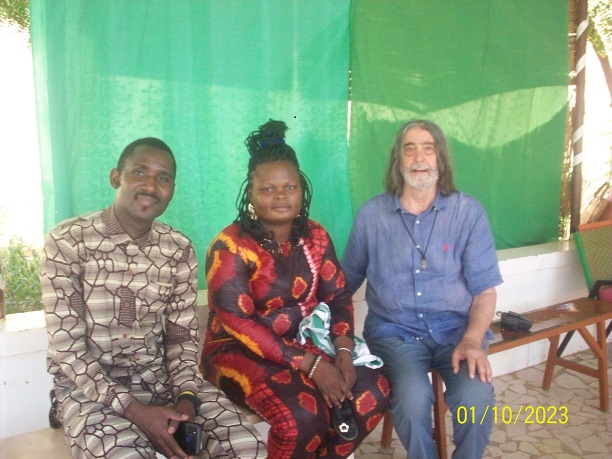
France will start pulling out its troops stationed in Niger for years – some 1,400 soldiers – this coming week. Following the coup of July 26, which ousted ex-president Mohamed Bazoum, who is still detained, Niger’s military leaders demanded the exit of the French ambassador and troops, to be completed by the end of the year. “In terms of national pride, the withdrawal of French troops feels like a great victory over the colonial past (and present), like turning a page in the book of royal ‘independence’! The ‘men in the street’ are proud of their role in the uninterrupted presence of garrisons at the French army bases on the road to Niamey’s international airport,” Father Mauro Armanino, a missionary with the Society of African Missions, told SIR from Niamey. He has been at the helm of a small Catholic community made up largely of African migrants for the past twelve years. “A large part of civil society,” he adds, “has aligned with the military leadership, out of conviction or interest, but above all out of weariness with the previous regime, which in 12 years caused the collapse of the political system and of an economy worthy of the name.” But the people of Niger “are suffering from sanctions that have been in place for more than two months, causing shortages of food, medicines and other supplies.”
What is the situation on the ground, how do the people of Niger feel about the French withdrawal and what are the prospects?
It’s difficult to describe the overall situation of a country and a people who live mainly in rural areas. I can give an account of what is perceived in the capital, Niamey, which is a fairly reliable barometer of public perception. People are suffering from the sanctions that have been in place for more than two months, causing shortages of food, medicines and other supplies.
Dwindling funds for humanitarian aid are detrimental to the people who depend on it for their livelihoods, especially in a situation of famine that is affecting the entire Sahel region and Niger in particular.
Firstly, it is a matter of getting through each day, especially now that schools have reopened and children’s school materials have to be paid for in cash. In terms of national pride, the departure of the French troops is seen as a great victory over the colonial past (and present), like turning the page of the real ‘independence’ book! The ‘men in the street’ are proud of their role in the uninterrupted presence of garrisons at the French army bases on the road to Niamey’s ‘Diori Hamani’ international airport! According to an old proverb, ‘nature rejects emptiness’, and it seems that other players are emerging: in addition to the USA, which has wisely kept a low profile in the face of the coup and whose troops have been moved to Agadez, with a military base including an airport and drones capable of controlling the whole of North and West Africa, there are Turkey, Russia, China and who knows who else. A large part of civil society is aligned with the military forces, out of conviction or interest, but above all out of weariness with the previous regime, which in 12 years managed to destroy a politics and an economy worthy of the name!
Ordinary people’s praiseworthy, silent, daily resistance
signals the special dignity that traditionally characterises the people of Niger, who suffer in silence, waiting for better times, despite the sand, wind, dust and the ordeal of insecurity caused by armed groups.
Is a transition to civilian rule possible, as some mediators hope?
There is a prime minister who served with the president ousted in 2010, Mahamadou Tandja, a cabinet of soldiers and civilians, and now we await the promised national consultation of the “living forces”, or at least of those entities that express lived experience, with the aim, it is believed, of drawing up a new constitution that better reflects the aspirations of the local population. The junta’s president, Abdouhramane Thiani, recently spoke in the two majority local languages, Zerma and Haussa, a move that was widely applauded and questioned the future of French as the country’s national language.
The transition is demanded by the people, who want to return to a life without sanctions and fear of possible attacks.
A few days ago, another attack by armed groups caused deaths among the military and displaced around 150,000 people, not to mention the schools that have been closed and the pupils who have been displaced. These are the concerns of the people!
 How do these political challenges affect your small Catholic community?
How do these political challenges affect your small Catholic community?
So far, the impact has been small. Our communities are mostly made up of faithful of foreign origin (Togo, Benin, Nigeria, Burkina Faso, Ivory Coast, etc.).
There are fears that ‘foreigners’ could be targeted because they are equated with ‘Westerners’, since in the collective imagination France = Christians.
In the future, these fears may prove well-founded if, as has happened elsewhere, the political developments are understood as ‘Nigerien authenticity’ in a society that is 98% Muslim. This could mean a departure from the non-denominational nature of the state, as provided for in the existing Constitution, in favour of something more ‘responsive’ to the spirit of Islam, with the risk of radicalism. In fact, Sufi Islamic confraternities, which are very tolerant, could be trumped by Salafist currents of Nigerian origin, thanks to preachers and money from abroad, which – not as of today – are involved in the construction of mosques, madrasas, Islamic universities and in humanitarian aid.
The border area with Burkina Faso, home to the Gourmanché people, the most vibrant Christian reality in the whole of Niger, is the most targeted by armed groups, and communities are persecuted for their faith.
The problems of Niger are many and difficult to solve: blackouts, poverty, malnutrition, insecurity due to jihadism, migration… What are the priorities?
To live! Life, life, life: these are the three priorities of the people of Niger… but with dignity, a dignity that in recent years has been confiscated, betrayed and too often sold to the highest bidder! Millions of people are threatened by food insecurity and about half of the population is living in poverty. The figures are unrelenting: we rank last on the planet in human development and multidimensional poverty. Hopefully, this will change when the new leadership and the international community, in particular the West African Community (CEDEAO/ECOWAS), lift the sanctions and the borders become what they were intended to be: a place of transit, encounter and trade. Now they are only places of robbery, because people pass through (illegally) but they have to pay a fortune. The new authorities are aware of this and are keeping quiet: not a good sign!
As for the issue of security from armed groups, this is crucial because the groups are about 50 kilometres from the capital.
This has been going on for years, which is unthinkable; a paradigm shift is needed, which means abandoning war as a solution to war. Because it is all about war: with religious, economic, territorial, ideological motivations, and therefore it must be fought on all these levels! Migrants are among those forgotten in the crisis, because they are among the system’s “invisibles”, ballast or fringes that can be “sold” for possible trade with the West, which is always keen to extend its borders to the Sahel!











